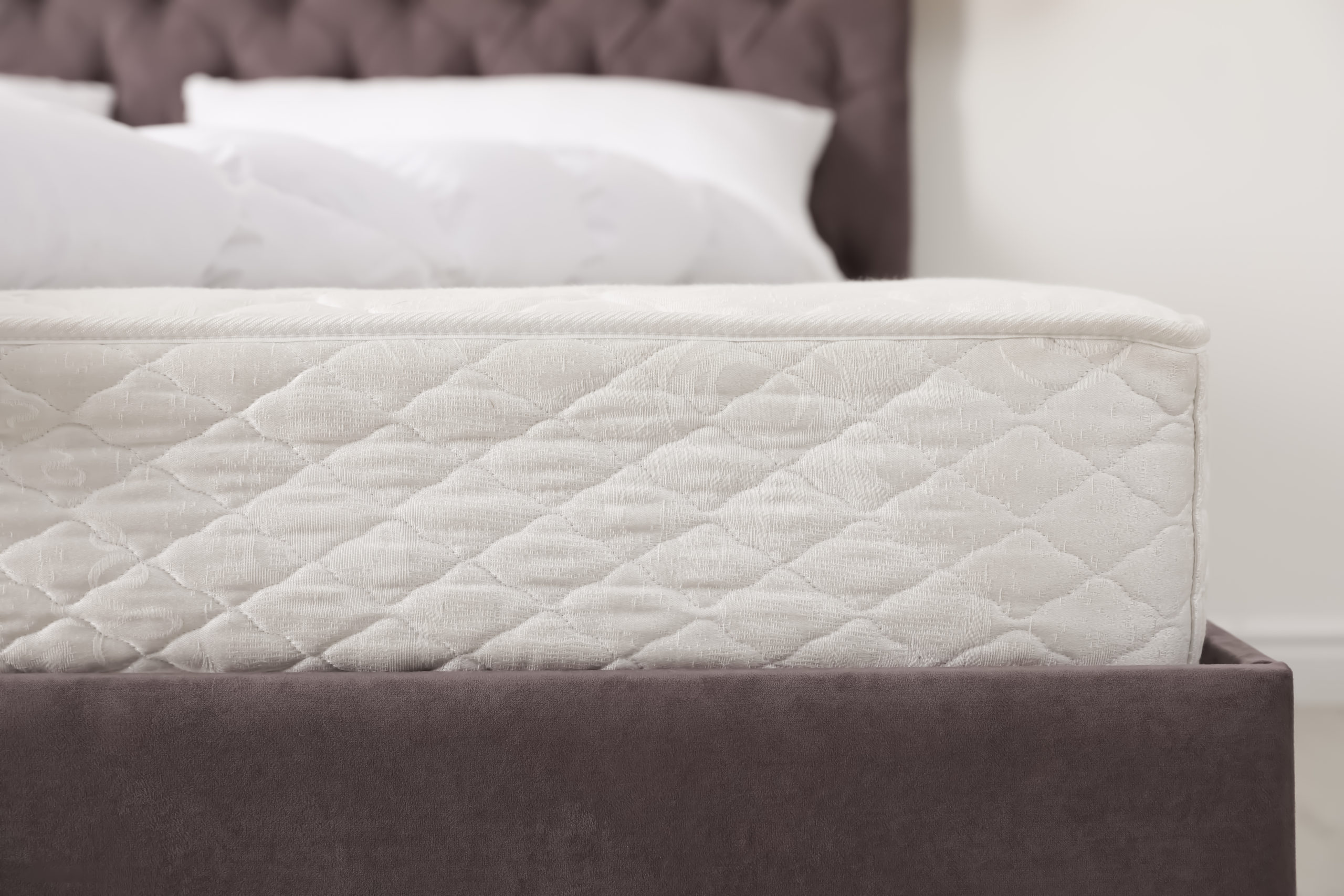
What if the space that was supposed to make you feel safe and comfortable wasn’t a safe space anymore? Are you worried your mattress might be toxic? You aren’t alone.
Many sleepers every year have unexplained allergies and illnesses. It may be worth looking at your mattress for answers. This article covers toxic mattress symptoms, the risks, and what you can do about it.
What Is Mattress Toxicity?
Mattresses can contain harmful chemicals and affect some people more than others. There are many different types of these chemicals and some can even be linked to health problems, such as cancer of the paranasal sinuses, nasopharynx, and nasal cavity.
Additional risks include infertility, developmental issues, and thyroid problems. Thyroid problems include goiter, hypothyroidism, and cretinism. Respiratory and skin irritation are another side effect.
If you get hot throughout the night and you have a mattress that traps heat, this can trigger the release of harmful gaseous chemicals. These chemicals are known as volatile organic compounds (VOCs) and mostly come from the polyurethane that is used in the mattress as well as other chemicals that are used in flame retardants and plastic.
However, the level of VOCs in a mattress are too low to cause any severe health problems. Other factors that could be making you sick are dust mite poop, mold, fungi, sweat and pet dander.
Symptoms to Look Out For
If you continuously wake up with any of the following, it is worth going to the doctor and mentioning your sleeping habits as well as the kind of mattress you are using.
- Eye, nose or throat irritation
- Headaches
- Abdomen pain
- Chest tightness
- Difficult breathing
If you have symptoms similar to allergies, especially every time you wake up, we recommend that you consider scheduling a doctor’s appointment.
What to Do If You Believe Your Mattress Is Toxic
There are plenty of things you can do to take action when it comes to mattress toxicity. First thing you should do is go see a doctor. You could also put in a requisition to see an allergist.
Secondly, find out what your mattress is made of and contact the company if you are unsure about the material. Start looking to replace your bed and look into mattresses that are made with more natural products.
You can also choose to clean the mattress if it is full of dander.
If you typically get hot during the night, it might be worth it to get a mattress or special bedding to help keep you cool. You need something that is well ventilated and won’t trap body heat.
What Type of Mattresses Can Help

Protect yourself by maintaining proper ventilation inside your home and room. Remember to open windows frequently and use fans when necessary.
You can also choose mattresses that are made of more organic material such as cotton, wool, and natural latex. These will produce lower levels of harmful gasses and be free of pesticides. Not to mention, they can be customized to ensure the utmost comfort and a more clean and peaceful sleep.
These mattresses might be a better choice for anyone that suffers from allergies, asthma or autoimmune diseases.
FAQ
How Do You Know If Your Mattress Is Toxic?
If your mattress is toxic, you might frequently wake up with allergy-type symptoms. These could include irritation in the nose, eyes or throat. You may also experience chest tightness or breathing problems.
What are the Materials that Could Be Toxic in a Mattress?
Materials that are toxic in a mattress are polyurethane, formaldehyde, synthetic latex, chemical flame retardants, toluene, methylene chloride, and vinyl.
How Do You Rid Your Mattress of Dander and Stains?
To rid your mattress of dander and stains, remove all bedding and wash it with hot water. After that use a vacuum and then spot clean it using a specific mattress cleaner or dish soap for the stains.
Afterwards, sprinkle baking soda all over the mattress and let sit for at least four hours, and then vacuum it again. Make sure to protect the mattress with a mattress protector and use fitted sheets.
Bottom Line
Even if your mattress is toxic, there are things you can do to make sure you don’t have the same problems again in the future. Remember to keep your rooms well-ventilated with lots of fresh air, and clean your bedding often.
If you are getting hot during the night, opt for a mattress that will keep you cooler so you are not sweating into the mattress every night. Most importantly, speak to a doctor as soon as you have concerns that you may have some sort of allergy or sickness caused by your mattress.
